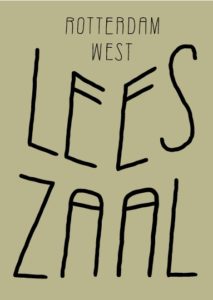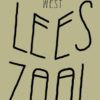Karin Christof in Culture Unbound (2017): 279-306 [special issue on “Mediatization, Mobility and New Methods of Knowledge”]
 Situated within the transition experienced by our welfare states, citizens have become ever more involved in the re-use of derelict public housing stock throughout Europe. These citizens are tentatively to be called ‘citizen professionals’ in the urban realm, a term that serves as a sensitizing concept to explore the social worlds of their contributions to the public domain. Employing various types of media to communicate their progress and success, these urban actors seek to gain the trust of the neighborhood and governmental institutions to sustain their projects within a broader community. Just as the media influence and structure cultural domains and society as a whole, the social-cultural activities carried out by citizen professionals in the public domain are mediatized not only by the actors themselves, but also by municipal organizations, policy workers, and governmental institutions. Grounding mediatization as a socio-spatial concept within empirical practice, the article examines the practices of citizen professionals and describes how they endeavor to attain public acknowledgment by representing their projects as showcases within a public domain. The article builds on pilot interviews conducted in Rotterdam (NAC, Reading Room West) and Vienna (Paradocks) to expound on the projects as lived spaces between mediatized and physical environments. Positioning citizen professionals within contemporary developments in the urban field, the article then investigates the underlying values of the spatial interventions, as well as how governmental bodies relate to their practices. Seen through the lens of mediatization, the article provides insights into how citizen professionals employ their social imaginaries and mobilize their activities around their agenda regarding the creation of a public domain.
Situated within the transition experienced by our welfare states, citizens have become ever more involved in the re-use of derelict public housing stock throughout Europe. These citizens are tentatively to be called ‘citizen professionals’ in the urban realm, a term that serves as a sensitizing concept to explore the social worlds of their contributions to the public domain. Employing various types of media to communicate their progress and success, these urban actors seek to gain the trust of the neighborhood and governmental institutions to sustain their projects within a broader community. Just as the media influence and structure cultural domains and society as a whole, the social-cultural activities carried out by citizen professionals in the public domain are mediatized not only by the actors themselves, but also by municipal organizations, policy workers, and governmental institutions. Grounding mediatization as a socio-spatial concept within empirical practice, the article examines the practices of citizen professionals and describes how they endeavor to attain public acknowledgment by representing their projects as showcases within a public domain. The article builds on pilot interviews conducted in Rotterdam (NAC, Reading Room West) and Vienna (Paradocks) to expound on the projects as lived spaces between mediatized and physical environments. Positioning citizen professionals within contemporary developments in the urban field, the article then investigates the underlying values of the spatial interventions, as well as how governmental bodies relate to their practices. Seen through the lens of mediatization, the article provides insights into how citizen professionals employ their social imaginaries and mobilize their activities around their agenda regarding the creation of a public domain.
